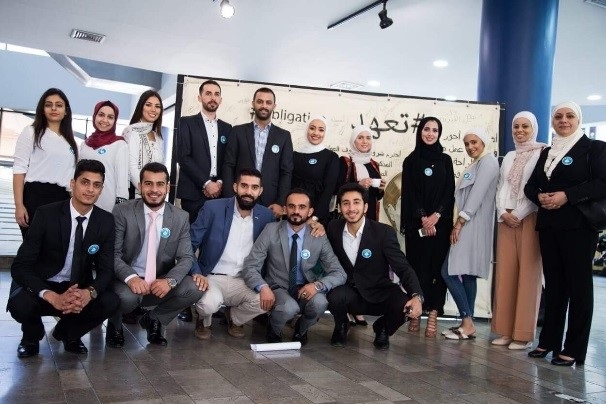23.10.2018
 Eliza Marks, Technical Officer, ILO Regional Fair Migration Project in the Middle East (FAIRWAY), ILO, Beirut │ marks@ilo.org
Eliza Marks, Technical Officer, ILO Regional Fair Migration Project in the Middle East (FAIRWAY), ILO, Beirut │ marks@ilo.org

When working to address the exploitation of migrant
workers in the Arab States region, our constituents consistently tell us
the issue is with the law and its implementation, but also with "the
culture and people's mind-sets".
Addressing public
mind-sets and behaviours is particularly salient when working to address
the exploitation of migrant domestic workers. Research has demonstrated
how the experiences of domestic workers are shaped by a complex
intersection between race, class, and gender. Further complicating the
issue is the fact that regulations pertaining to domestic workers rights
are to be implemented in private households by individuals and families
who do not see their role as employers in the traditional sense, or
recognize their home as a workplace. Therefore, these employers often do
not consider typical issues of overtime wages, occupational safety and
health, or freedom of association.
When formulating a
project response – within the context of the SDC-funded ILO Regional
Fair Migration Project in the Middle East (FAIRWAY) – we turned to our
attention to the youth of the region.
We theorized that youth
were more amenable to attitude change, are able to influence the
behaviour of their families and communities, and would one day go on to
become employers of domestic workers themselves. We saw youth as an
untapped source of innovative, contextualized responses to the issue of
exploitation of migrant domestic workers.
In early 2018,
FAIRWAY worked to establish volunteer Youth Networks under the framework
of the global My Fair Home campaign. My Fair Home is an initiative of
the ILO and the International Domestic Workers Federation which calls on
employers of domestic workers to pledge to commit to the principles of
the ILO Domestic Workers Convention (No. 189) in their own home.
We
worked with local civil society organizations to mobilize and train the
Youth Networks – comprised of university students and recent graduates
from different areas of Lebanon and Jordan. The group members exceeded
our expectations in their enthusiasm, commitment and innovative approach
to campaigning and advocacy.
Throughout 2018, the Youth
Networks adopted a strategy of peer-to-peer campaigning with the goal of
stimulating a generational shift in treatment of migrant domestic
workers. To achieve this, the networks focused on hosting public
outreach events at universities and on developing creative social media
videos – including a rap video, student pledge videos, a social experiment video; and videos with Jordanian and Lebanese celebrities.
In
devising the campaign strategy and messages, the Youth Networks
emphasised the importance of tapping into specific elements of their
national culture to find creative channels for behaviour change. For
example, some of the initiatives pursued included shaping activities
around Ramadan, drawing on Islamic edicts and their relationship to
respect for workers' rights and principles of equality and generosity.
The
Youth Networks continue to develop their ideas and strategy, and have
expressed their desire to start working with an even younger generation –
highlighting the potential to work with students at the primary school
level.
In our work with the media – training and
supporting journalists to report on labour migration in a rights-based
and ethical manner – we saw journalists tap into aspects of 'migration
and culture' too. Journalists sought to bring a diversity of stories to
the media landscape, including those that seek to highlight migrants'
home cultures and promote the values and benefits of multiculturalism.
For example in Dubai, a journalist produced a series called "My Ramadan
Routine" – interviewing migrants from many different countries and
cultures about what Ramadan means to them and their unique way of
celebrating it.
The Youth Network initiative has however
not been without its challenges. For example in the second phase of the
project we are exploring how to overcome issues of sustainability and
leadership structures within a volunteer network; and ensuring that we
have the ability to expand and remain flexible, while adhering to the
scheduling constraints associated with working with university and
school students.
Ultimately, this experience points to
the need for more research into behaviour interventions and more pilot
testing of initiatives which can draw on localised solutions to this
global and regional issue.
Related resources:
Facebook.com/MyFairHome
Idwfed.org/myfairhome
